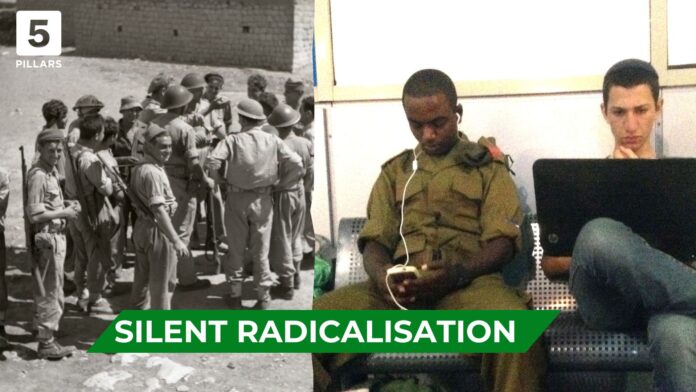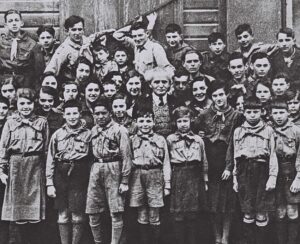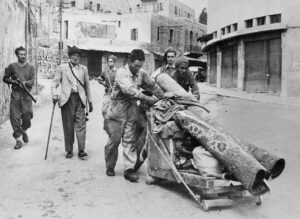The Radicalization of an Entire Society
An influential Islamic scholar argues that Israel’s internal systems—including its education, public relations, media, and legislative practices—have contributed to the normalization of extreme views, ultimately creating a society that unquestioningly supports aggressive policies. Studies have indicated that a significant majority of the population perceives military actions in Gaza as either justified or insufficient, while many also back the expulsion of Gaza’s residents and the conquest of enemy cities reminiscent of ancient practices. A pervasive sentiment denies the existence of innocents in Gaza, and most citizens maintain that the force used is entirely justifiable.
This environment of desensitization has been nurtured by decades of state-backed narratives, which have muted empathy toward Palestinians. Critics observe that what began as a state policy has evolved into a national mindset, with many experts bemoaning the inability of society to connect compassionately with the suffering in Gaza.
Education: Crafting a Siege Mentality
For many years, the educational curriculum has played a central role in embedding a particular narrative that emphasizes Zionist ideology while fostering hostility toward Arabs. Scholars note that textbooks are often designed with an eye toward preparing young Israelis for compulsory military service and reinforcing the idea that the nation exists to dominate Palestinian territories. Historical accounts in these texts have frequently been sanitized or manipulated—the Palestinian experience of displacement has been downplayed or recast, and events that should raise ethical questions are instead portrayed as necessary for national survival.
This system has gradually shaped a mindset in which Palestinian history is either omitted or misrepresented. Revisions attempted in past decades were met with resistance, and any critical discussion of the Nakba or Palestinian rights was discouraged. The resulting educational framework perpetuates an atmosphere of fear and xenophobia, where neighboring peoples are depicted not as equals but as obstacles to national continuity.
Hasbara: The Machinery of State Propaganda
From its inception, Israel’s propaganda arm—referred to as Hasbara—has worked tirelessly to project a specific national narrative both domestically and internationally. Rooted in early state ideology, this mechanism has provided a rationale for military actions abroad while sanitizing similar actions at home. Over the years, Hasbara has evolved into a highly coordinated operation that involves government bodies, business interests, and networks overseas, all singing from a unified script. Its core message paints Israel as a beleaguered nation, under constant threat from a hostile environment, thereby justifying extreme measures as necessary self-defense.
Critics point out that any external critique is quickly dismissed as biased, reinforcing the idea that only the state’s perspective holds moral authority. This approach not only consolidates domestic support but also allows the state’s narrative to dominate public discourse, thus sidelining any counterarguments.
Media and the Creation of a One-Sided Reality
The domestic media landscape is imbued with narratives that glorify military actions and promote a culture of constant vigilance and hostility. Mainstream news outlets and social media platforms regularly present war as an inevitable and righteous undertaking, while omitting or discrediting accounts of Palestinian suffering. As a result, the public is largely confined to a narrow stream of information that aligns with official positions, effectively isolating them from alternative perspectives and deeper moral debates.
This self-reinforcing echo chamber not only stifles dissent but also ensures that any critical voices or independent media reports are marginalized. The cumulative effect is a society increasingly desensitized to violence and more inclined to accept extreme measures as part of its national identity.
Law and Institutionalized Discrimination
Legislation over recent decades has further entrenched separation and inequality. A series of laws reinforces a system where advocacy for Palestinian rights is discouraged through punitive measures, while constitutional provisions emphasize a uniquely Jewish entitlement to self-determination. These legal frameworks contribute to an environment where Arab citizens are systematically treated as second-class residents, reinforcing divisions and deep-seated animosities.
A Society Transformed by Extremism
The combined impact of educational indoctrination, state propaganda, a controlled media environment, and discriminatory laws is unmistakable. Attitudes once considered radical have become mainstream, supporting a vision of society where exceptionalism and militant nationalism prevail. Since the early 2000s, a fusion of ethno-nationalist ideology with military assertiveness has reshaped public opinion, leaving little room for critical reflection or alternative viewpoints.
The challenge remains whether this deeply ingrained mindset can ever be reversed, or if the long-term effects of decades of radicalization will continue to dictate the course of society. The question looms large: can a population so meticulously conditioned by generations of extreme narratives rediscover a capacity for empathy and self-reflection?





Embracing Faith, One Insight at a Time!
The teachings of the Quran have always guided my path. With a deep passion for Islamic knowledge, I strive to blend the wisdom of tradition with the relevance of today, making the timeless messages of Islam accessible and meaningful for everyone.
Muslim Culture Hub is my platform to share historical insights and thought-provoking articles, exploring both well-known and lesser-discussed aspects of Islamic culture and beliefs. My mission is to create an inclusive online space where everyone can learn, strengthen their faith, and connect with the profound message of Islam.
Join the journey!
May peace be upon you.







